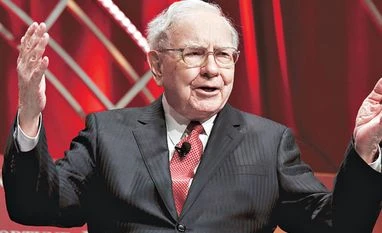US utility owner Sempra Energy agreed to buy control of Texas power distributor Oncor Electric Delivery for $9.45-billion, topping a bid by Warren Buffett's Berkshire Hathaway just last month.
Sempra's deal for Energy Future Holdings, which owns 80 per cent of Oncor, is valued at about $18.8 billion including debt, the San Diego-based company said in a statement Sunday. Sempra plans to fund the purchase through a combination of its own debt and equity, as well as third-party equity and $3 billion of borrowings by the reorganised company, it said.
Sempra is the latest suitor seeking to take over Oncor since its parent Energy Future declared bankruptcy in 2014. Just six weeks ago, Berkshire struck a deal to buy Oncor for $9 billion. Shortly after, billionaire investor Paul Singer's Elliott Management fired back, saying it was working to pull together a rival bid that may total $9.3 billion, a move that triggered a public battle for the Texas utility.
Elliott voiced its support of the Sempra deal Monday, saying in an emailed statement it provides "substantially greater recoveries" to all Energy Future creditors than Berkshire's offer. The hedge fund is among Energy Future's biggest debt holders. Energy Future has terminated Berkshire's offer, Berkshire said Monday in a statement.
Sempra has been working on its bid for weeks while Elliott and Berkshire fought publicly, according to a person familiar with the matter who asked not to be identified because the details aren't public. Elliott's move to buy up about $60 million worth of unsecured debt- giving it the ability to block the Berkshire bid -cleared the way for Sempra's offer, the person said. It would be Sempra's largest acquisition since it was formed in 1998, based on data compiled by Bloomberg, expanding its US utility territory beyond California.
Elliott and Berkshire provided a road map for Sempra's offer, the person said. Elliott set a benchmark for Oncor's value with its planned $9.3 billion bid.
Berkshire outlined 44 regulatory commitments that were signed off on by various stakeholders, including the Public Utility Commission of Texas staff. Sempra is comfortable meeting those conditions, including measures to protect Oncor's credit, the person said.
The deal is key to ending Energy Future's bankruptcy, which has now spent more than three years working to restructuring almost $50 billion of debt. On Monday, US Bankruptcy Judge Christopher Sontchi scheduled a September 6 hearing to consider approval of the merger agreement with Sempra and its $190 million termination fee. The Berkshire deal included a termination fee of $270 million, subject to certain conditions and court approval, according to a regulatory filing.
Elliott would recover 45 to 50 cents on the dollar of its investment in the unsecured debt in Oncor's parent under Sempra's offer, compared with 18 cents in the Berkshire bid, according to people familiar with the matter who asked not to be identified because the details aren't public. Sempra's offer must still clear the bankruptcy court and win the approval of the two Texas PUC commissioners among other regulatory approvals.
Sempra shares rose as much as 1.9 per cent Monday, the most since March 15. It received financing commitments for the deal from RBC Capital Markets and Morgan Stanley, according to the statement, and expects the transaction to be completed in the first half of next year. Lazard and Morgan Stanley advised Sempra, with White & Case acting as legal advisers, it said.
Others have tried and failed to take over the Texas utility, which serves almost 10 million customers and operates more than 106,000 miles (170,590 kilometers) of distribution lines.
Earlier this year, Texas utility regulators quashed an offer from NextEra Energy, valued at $18.4 billion including debt, after the utility giant refused to establish ring-fencing measures to protect Oncor's credit. A group led by Hunt Consolidated dropped a bid last year after the state imposed conditions it found too onerous.
"It's not just a question of what you're offering -it's a question of whether or not it's going to make Texas regulators feel comfortable enough to allow the deal," Paul Patterson, a utilities analyst at Glenrock Associates LLC in New York, said by phone. "And we've already seen two fail in this situation."
Sempra said in its statement announcing the deal that it "will maintain the existing independence of Oncor's board of directors, which has protected Oncor and its customers during the ongoing Energy Future bankruptcy."
Energy Future was formed a decade ago by KKR & Co, TPG Capital and Goldman Sachs Capital Partners as part of the biggest leveraged buyout in history. It sought protection from creditors after natural gas plummeted, dragging down wholesale prices for the power the company was generating.
Sempra runs power and gas utilities in Southern California, Chile and Peru that altogether serve more than 32 million consumers, according to the company's website. It also owns and operates almost 2,400 megawatts of renewable energy capacity with partners; the Mexico pipeline developer IEnova; and a liquefied natural gas export terminal project in Louisiana with partners.
Elliott recently bought debt in Oncor's parent in its latest effort to block Berkshire's bid, people familiar with that matter said August 16. Buying the notes means Elliott and Sunrise Partners, which also opposes Berkshire's offer valued at $18.2 billion with debt, own the majority of every class of impaired credit in the holding company, one of the people said. That might allow Elliott to block the Berkshire deal as a so-called dissenting impaired class of creditor under bankruptcy law.
Bloomberg
Unlock 30+ premium stories daily hand-picked by our editors, across devices on browser and app.
Pick your 5 favourite companies, get a daily email with all news updates on them.
Full access to our intuitive epaper - clip, save, share articles from any device; newspaper archives from 2006.
Preferential invites to Business Standard events.
Curated newsletters on markets, personal finance, policy & politics, start-ups, technology, and more.
)